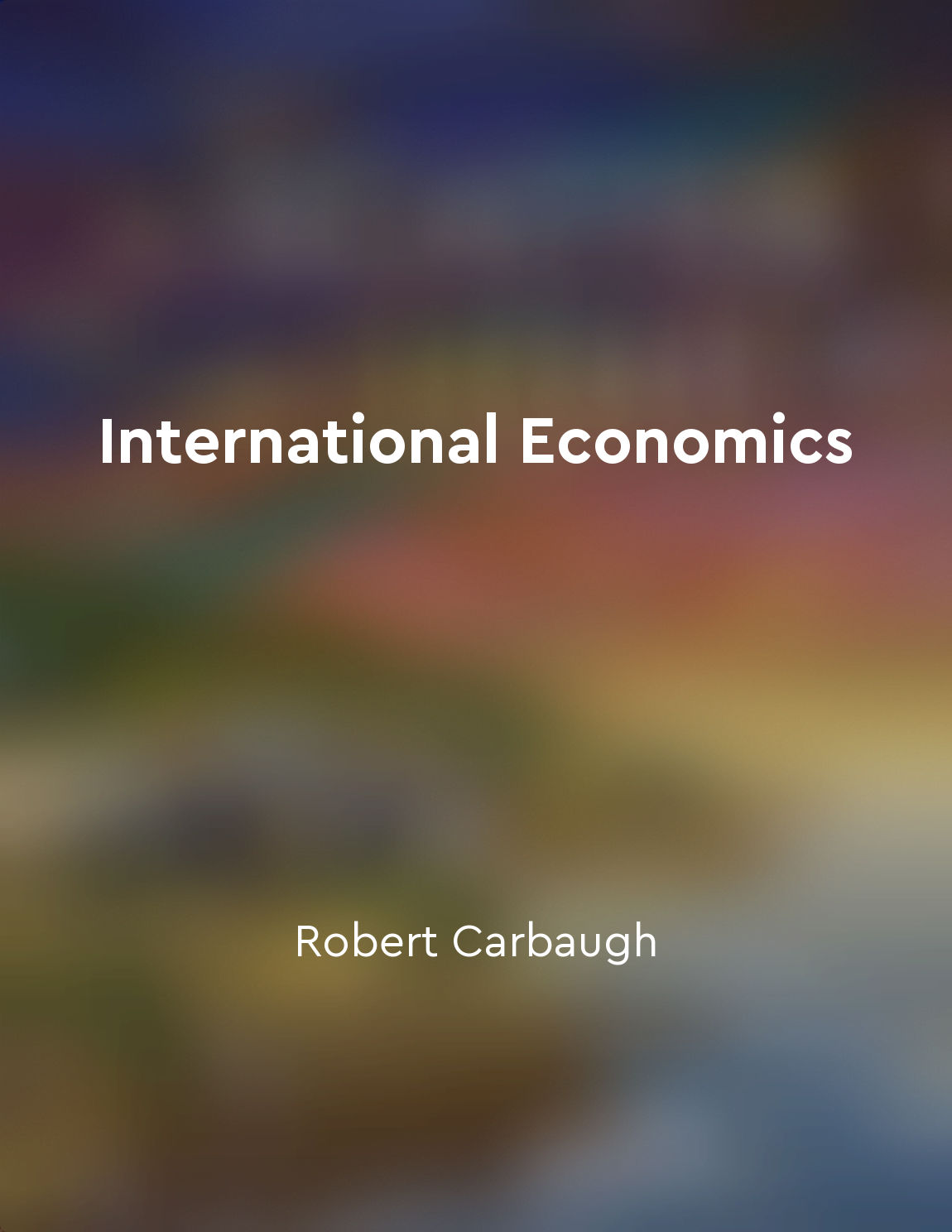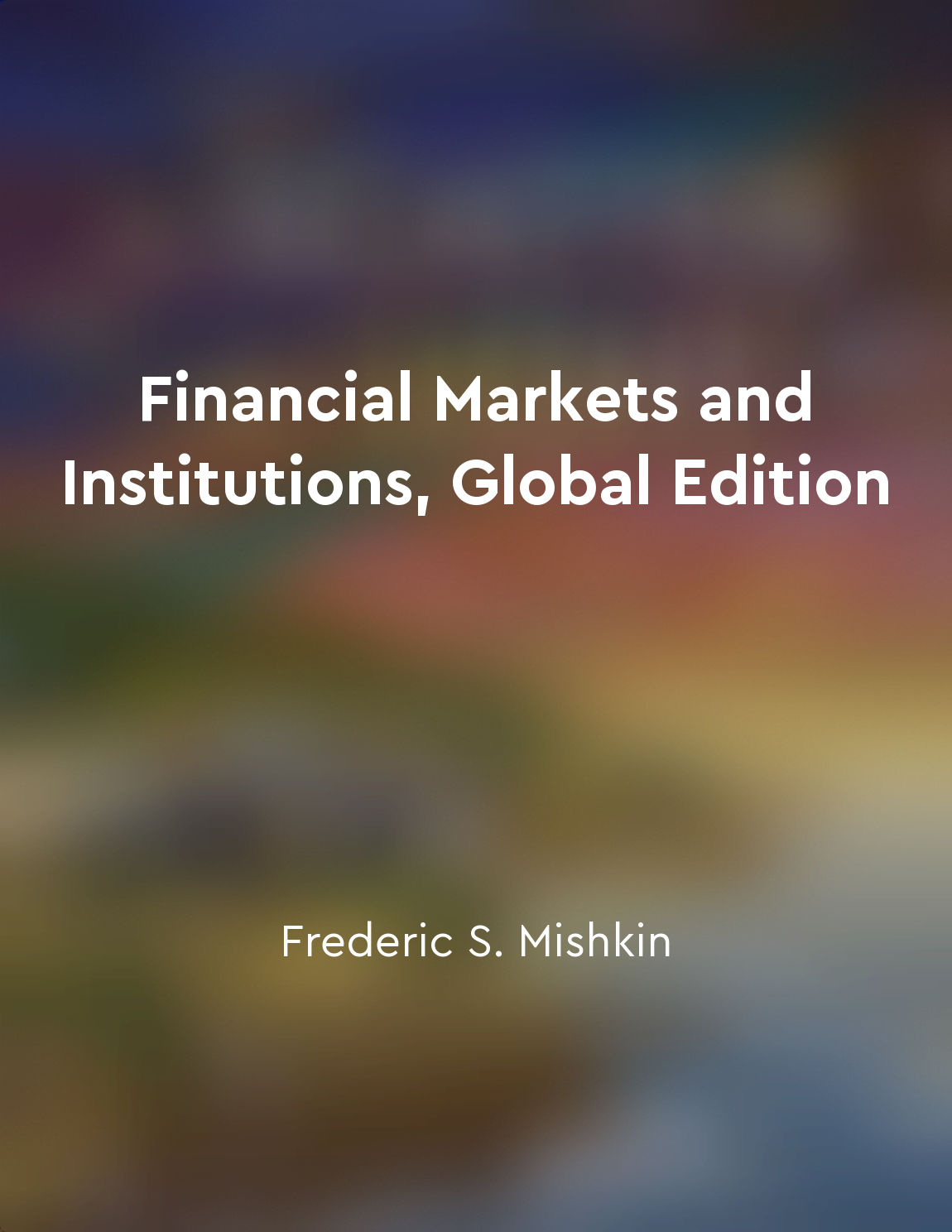Macroeconomics studies economy as a whole from "summary" of Macroeconomics for Business by Lawrence S. Davidson,Andreas Hauskrecht,Jürgen von Hagen
Macroeconomics is concerned with the big picture of the economy. It looks at the economy as a whole, rather than focusing on individual markets or industries. This means that macroeconomics examines the overall performance of the economy, including factors such as GDP, inflation, unemployment, and government spending. By studying these aggregate measures, macroeconomists can gain insights into the health and stability of the economy. One of the key concepts in macroeconomics is the idea of interdependence. This means that different parts of the economy are interconnected and can have a ripple effect on each other. For example, a change in government spending can impact consumer spending, which in turn affects businesses and employment levels. By studying the economy as a whole, macroeconomists can better understand these complex relationships and predict how changes in one area will affect the overall economy. Another important aspect of macroeconomics is the role of government policies. Macroeconomists study how government interventions, such as fiscal and monetary policies, can influence the economy. For example, the government might increase spending during a recession to stimulate economic growth, or raise interest rates to curb inflation. By analyzing the impact of these policies on the economy as a whole, macroeconomists can provide insights into the effectiveness of different approaches to managing the economy.- Macroeconomics provides a broad perspective on the economy, allowing us to understand how different factors interact and shape economic outcomes. By studying the economy as a whole, macroeconomists can identify trends, make predictions, and inform policy decisions that can help to promote economic growth and stability.
Similar Posts
Investment in physical and human capital promotes growth
Investment in physical and human capital is essential for promoting economic growth. Physical capital refers to the tools, mach...

Comparative advantage drives specialization in trade
The concept of comparative advantage lies at the heart of international trade theory. It refers to the ability of a country to ...
Poverty and social unrest on the rise
In recent years, a troubling trend has emerged in society - an increase in poverty and social unrest. This phenomenon is not is...

Institutions such as banks and investment firms facilitate the flow of funds
Institutions such as banks and investment firms play a crucial role in the financial system by facilitating the flow of funds. ...
Track performance and adjust strategies accordingly
When you're out on the road, you must constantly monitor how your investments are performing. This involves keeping a close eye...
The Benefits of Free Market Pricing
The benefits of free market pricing are numerous and far-reaching. When prices are allowed to be determined by the interactions...
Competition benefits consumers through lower prices and better products
Competition between businesses forces them to constantly seek ways to attract customers by offering lower prices and better pro...

Aggregate demand impacts business output
Aggregate demand is a critical concept that businesses need to understand in order to navigate the macroeconomic environment. P...
Economic systems vary in how they allocate resources and distribute goods and services
Different economic systems have their own unique ways of deciding how resources should be allocated and goods and services dist...
Economic growth can alleviate poverty and improve living conditions
The idea that economic growth has the potential to alleviate poverty and enhance living conditions is a fundamental concept in ...

